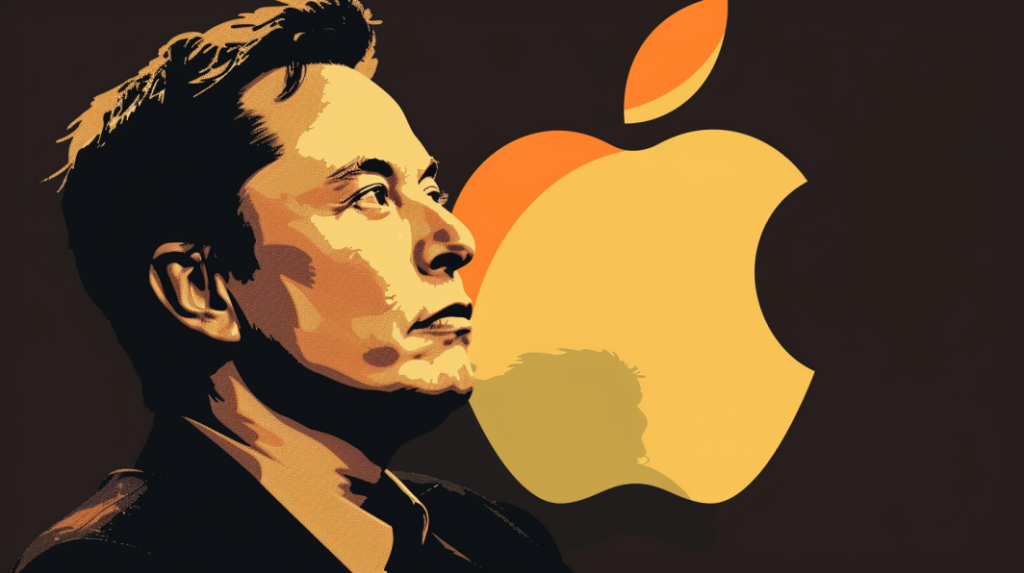Elon Musk’s threat to ban iPhones from all his companies over Apple’s integration of OpenAI’s technology underscores the intensifying debate surrounding user privacy and data security in the era of AI-driven innovations. In a series of posts on X, Musk expressed deep-seated apprehension about the implications of OpenAI’s integration into Apple’s operating system, suggesting that it could potentially compromise user privacy. Despite assurances from both Apple and OpenAI that users are asked for permission before any data is shared with ChatGPT, Musk remains skeptical about the extent of OpenAI’s integration and its potential impact on user data security.
The crux of Musk’s concern lies in his belief that OpenAI’s integration at the OS level could lead to the collection of personal and private data without explicit user consent. This fear underscores broader anxieties about the growing power of AI-driven technologies and their implications for user autonomy and data privacy. Musk’s criticisms highlight the need for greater transparency and accountability in the deployment of AI systems, particularly when they involve sensitive user data.

Apple’s announcement at WWDC 2024 revealed plans to integrate ChatGPT into Siri and other Apple products as part of its broader initiative called “Apple Intelligence.” This move aims to enhance user experiences by offering personalized AI assistance seamlessly integrated into various Apple devices. However, Musk’s response indicates a preference for OpenAI’s capabilities to remain confined to a dedicated app rather than being deeply integrated into Siri or other core features of Apple’s ecosystem.
The debate surrounding user privacy and data security intensifies as technology companies increasingly rely on AI-driven features to enhance their products and services. Musk’s criticisms underscore the need for transparent data handling practices and robust privacy safeguards to protect user information in the age of AI. As AI technologies become more pervasive in everyday life, stakeholders must address concerns about data privacy and security to build trust and confidence among consumers.

Responding to comments from venture capitalists and industry insiders, Musk reiterated his concerns about the potential privacy implications of OpenAI’s integration into Apple’s ecosystem. He emphasized the importance of clarity regarding how user data is handled and shared between Apple and OpenAI, highlighting the need for strict safeguards to prevent unauthorized access or misuse of personal information. Musk’s remarks reflect broader concerns within the tech community about the ethical and legal implications of AI-driven innovations and their impact on user privacy and data protection.
Despite assurances from Apple and OpenAI about privacy protections, Musk’s criticisms raise important questions about the ethical and legal implications of integrating third-party AI technologies into consumer devices. As technology continues to advance, stakeholders must navigate complex issues surrounding data privacy, security, and user consent to ensure responsible and ethical use of AI-driven features.

In addition to Musk’s concerns, Apple’s integration of ChatGPT into its ecosystem has sparked broader discussions about user autonomy and control over AI interactions. Some users may welcome the convenience and functionality offered by AI-driven features, while others may harbor reservations about the potential risks to privacy and data security. As AI technologies become more integrated into everyday life, it is essential for companies to prioritize user privacy and data security to maintain trust and confidence in their products and services.
Apple’s decision to integrate ChatGPT into its products reflects a broader trend towards AI-driven innovation in the tech industry. As companies explore new ways to leverage AI technologies to enhance user experiences, they must also address concerns about privacy, security, and ethical use to build trust and confidence among consumers. In conclusion, Elon Musk’s threat to ban iPhones from his companies underscores the importance of prioritizing user privacy and data security in the development and integration of AI-driven features. As technology continues to evolve, it is crucial for companies to adopt transparent and responsible practices to safeguard user information and uphold the principles of privacy and data protection.
If you like the article please follow on THE UBJ.

